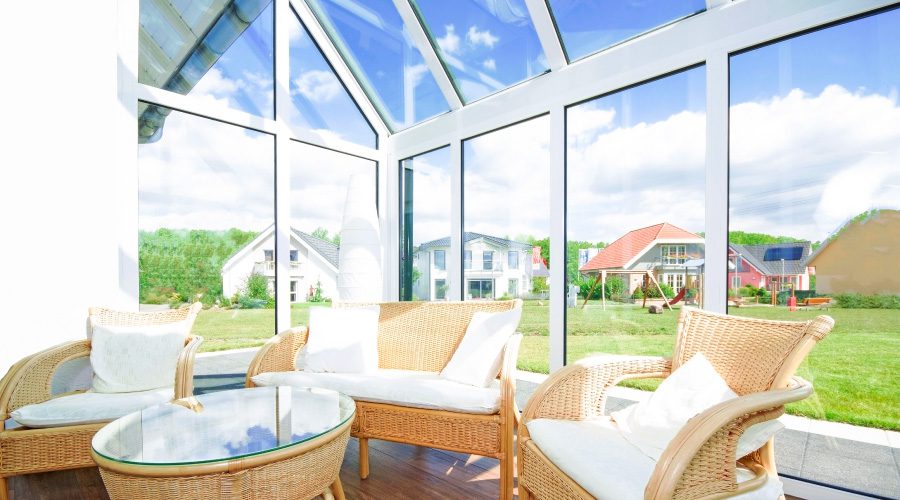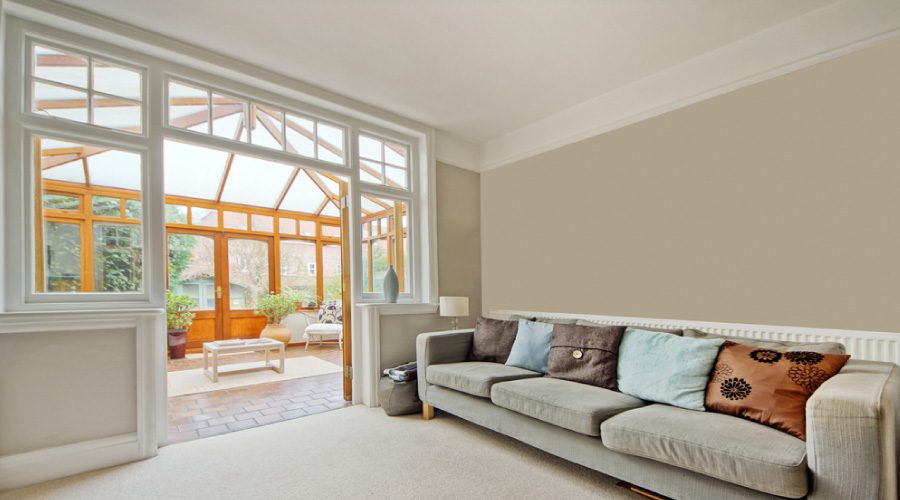25th January 2024
Disclosure: This post contains affiliate links, including Amazon Associate links, through which I earn from qualifying purchases at no extra cost to you.
I only recommend products I genuinely believe in. Visit my Privacy Policy page for more information.
Conservatories can be beautiful additions to any home, and many people have them installed to enjoy at their leisure. However, there are also those of us who look into getting conservatories to increase property value. Does a conservatory add value to your home – and if so, how much? Let’s find out.
Does a conservatory add value?
Generally speaking, yes, a conservatory can add a lot of value to your home. But how much does a conservatory add to house value on average?
It is estimated that a conservatory could add as much as 5% extra value on top of your current property price. This rate may vary depending on a few factors – style, size, build quality and upkeep.
Pay a Deposit on a Credit Card for Protection
Factors to consider if you’re getting a conservatory to add value to your property
For your conservatory to add genuine value to your final sale, your extension needs to be expertly designed and built – as well as carefully maintained. It should also blend in well with your home’s original architecture.
A conservatory extension that’s both aesthetically pleasing and structurally robust can help to boost the overall value of almost any property. Moreover, you can benefit from a beautiful, relaxing space for any time before your final sale!

Is a conservatory a good investment?
Whether a conservatory is a good investment depends on a few things – for example, you need to consider why you are building the conservatory in the first place.
Speak to estate agents about your extension plans.
Suppose you want a conservatory to increase your home’s value before selling it. In that case, it is best to consult as many estate agents as possible in your area before seeking builder quotes. They can give you more precise figures on the potential added value to your home – if at all. They may also be able to guide you on how the conservatory should look, where it should be, sizing, etc. – to ensure that you get the optimum value for it.
However, in some cases (generally, if you opt for a poor-quality extension), conservatories do not add value to your home and can devalue it. An expert estate agent will advise you if this is the case. After all, they want to help you sell your home!
Only get a conservatory for YOU; added value is just a bonus!
In any case, the best reason to install a conservatory is if you’re doing so for yourself or your family – think of resale value second. If you are looking for an extension or a nice area with broad views of your garden, conservatories can make perfect investments!
However, don’t just opt for any conservatory installation for the sake of it. There is no point in saving money on size, materials, or companies if your prospective conservatory isn’t perfect for your needs. Remember that this kind of change to your home is permanent – anything less than the best will waste time and money.
Conservatories make lovely investments if you want somewhere nice and sunny to host gatherings or watch over your garden on pleasant days. You could even use a conservatory as a garden office or a bright, cheery nursery space.

Do conservatories devalue a house?
In some cases, conservatories can devalue homes – mainly if they are poorly made, designed without the existing property in mind, or improperly maintained over time.
What issues can a bad conservatory cause?
Poor-quality conservatories can develop temperature issues, grow mould, and even suffer from structural damage – which can cause great concern. Unless you take steps to rectify such problems, no one will be likely to purchase your home from you – let alone pay more for your extension!
Even conservatories that clash with the house can devalue the home. If they are made of materials or colours that do not match the home’s architecture and style, then they can stick out like a sore thumb! Therefore, interested buyers may want to remove or redo them completely, thus removing your home’s value.
Pay a Deposit on a Credit Card for Protection
Things to consider for buying a conservatory
Before committing to buying a conservatory, there are a few things that you will need to bear in mind.
Why do you want a conservatory, what will you use it for?
First of all, consider why you actually want the conservatory. This will help you to decide on the size, shape, and position – do you want to look out on your garden, store plants, or host parties?
What space do you have for a new conservatory extension?
Then, think of the space that you have available for the conservatory to be positioned, the budget you have set aside, how you would heat it, and whether or not the conservatory is specifically for you (or potential future buyers).

Once you’ve considered these points, be sure to speak to experts
Each point will need to be carefully considered, and with decisions such as these, it is best to have the advice of a professional. For that, you should consult multiple estate agents, conservatory experts, and anyone you know who may have a conservatory for their experience and advice. Get networking!
So, will a conservatory add value to my home?
Your area, the construction quality, and the overall design of the conservatory will all impact whether or not it adds value to your home. Unfortunately, it’s never an exact science.
That is why choosing the right conservatory, ensuring it is in a perfect position, and ensuring you work with reputable designers and builders are crucial to creating value.
It is also worth considering the cost of the conservatory, as the value it may add to your home may not be worth the actual cost of the construction. Be sure to crunch some numbers with a bookkeeper or estate agent.
Friday, November 18th, 2022 in Conservatories